Comparing lengths Extra Challenge Measurement Worksheets for Ages 4-6
5 filtered results
-
From - To
Enhance your child's learning experience with our "Comparing Lengths Extra Challenge Measurement Worksheets" designed specifically for children ages 4-6. These engaging worksheets encourage young learners to explore the concept of measurement through fun activities and colorful illustrations. Children will practice comparing different lengths, developing critical thinking skills while enjoying interactive tasks. Perfect for early education settings or at-home learning, these worksheets cater to various learning styles, making math enjoyable and accessible. Watch as your child gains confidence in their measurement skills while preparing for future math challenges. Download now to spark curiosity and creativity in your budding mathematician!
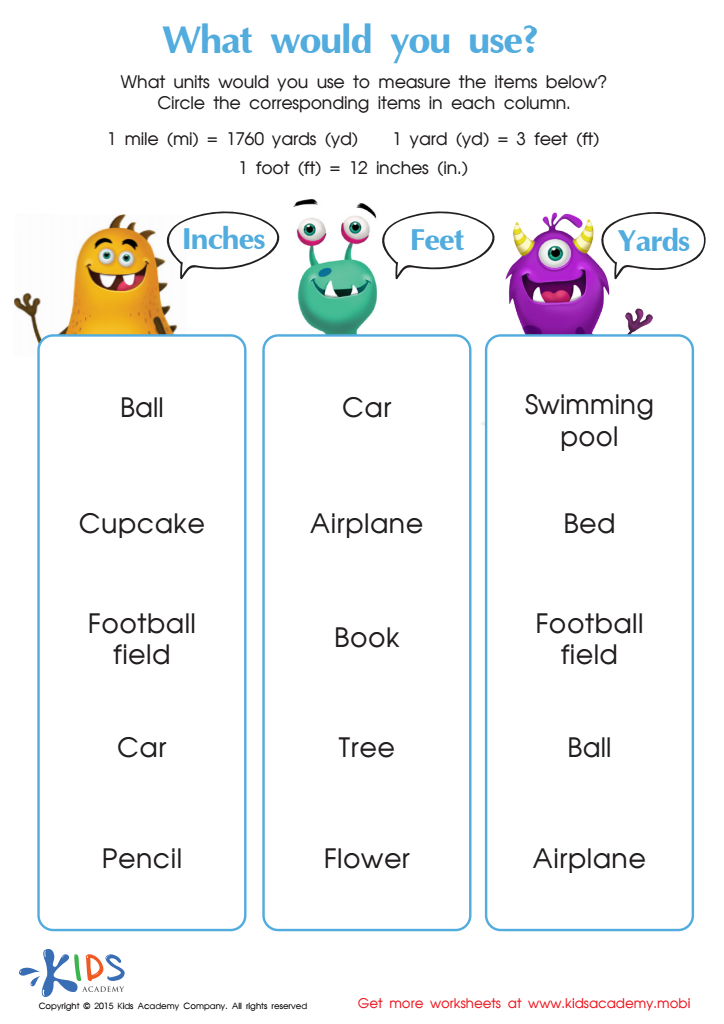

Learning about measuring objects in inches, feet and yards Worksheet
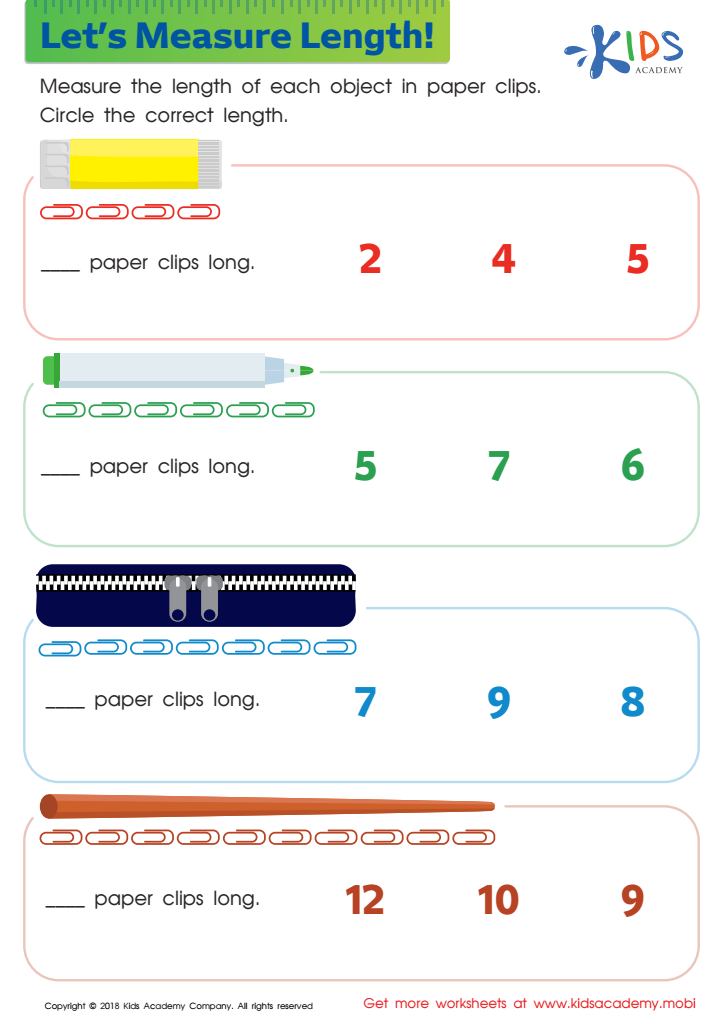

Lets Measure Length Worksheet
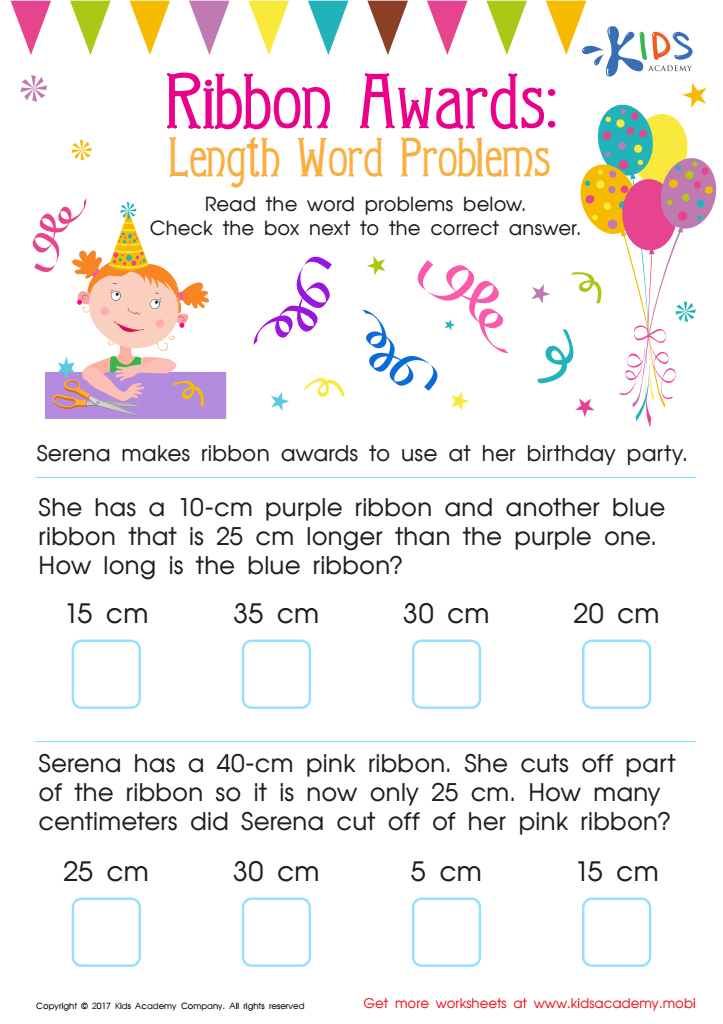

Length Word Problems Worksheet
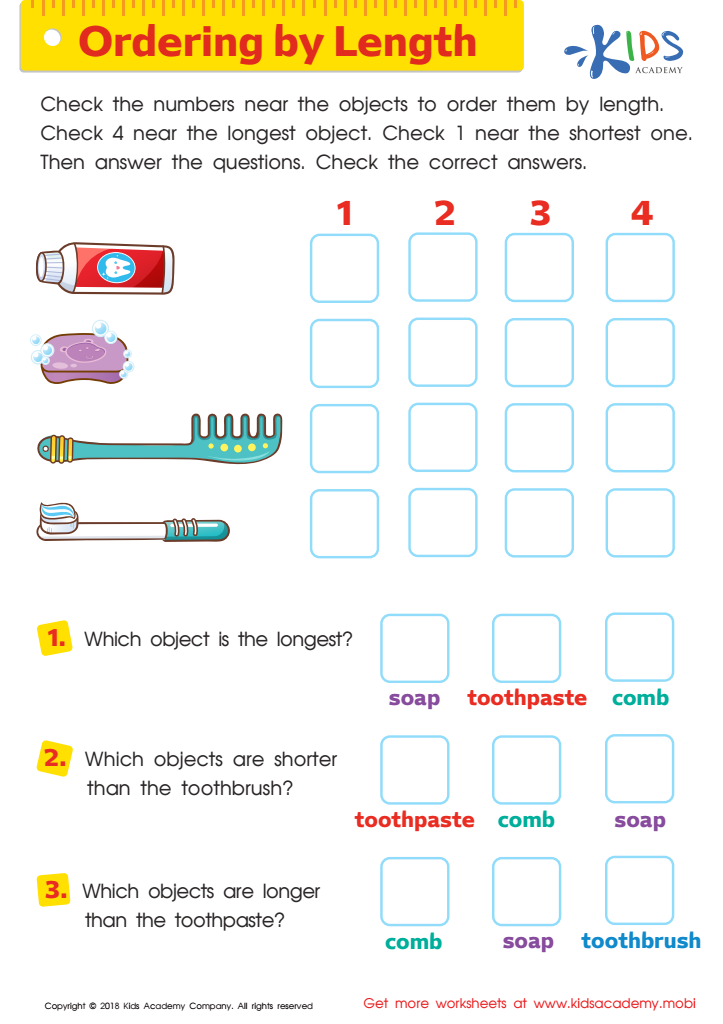

Ordering by Length Worksheet
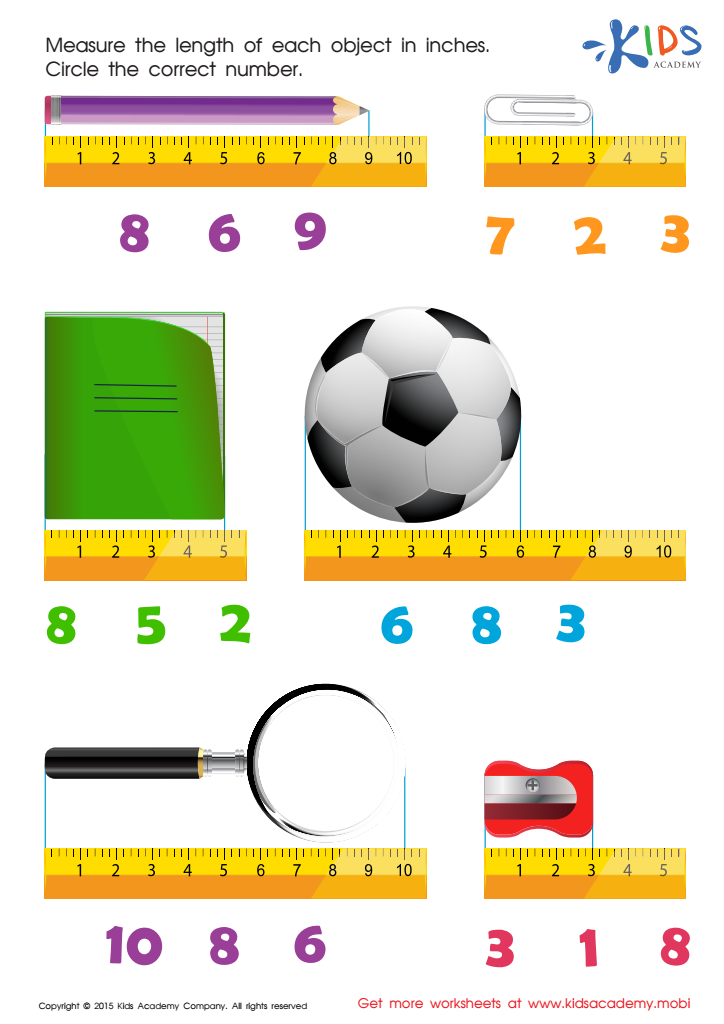

Learning measuring objects in inches Worksheet
Comparing lengths is a foundational skill in early childhood education that has significant implications for a child's overall development. For parents and teachers of 4 to 6-year-olds, engaging children in activities focused on comparing lengths helps foster critical thinking and problem-solving abilities. These activities encourage children to observe, analyze, and interpret information visually, skills essential for their cognitive growth.
Moreover, understanding measurement concepts sets the groundwork for future learning in mathematics. Early exposure to measurement prompts children to explore concepts of size, volume, and distance, laying the groundwork for more complex topics such as geometry and algebra in later years. Engaging in measurement activities also supports language development, as children learn to articulate their thoughts and reasoning using specific vocabulary related to size and comparison.
Additionally, comparing lengths can promote fine motor skills through hands-on activities, such as using rulers or measuring tapes, and enhances social skills through collaborative tasks that encourage teamwork and communication. Lastly, these activities can make learning fun and interactive, sparking children's natural curiosity and sense of wonder about the world around them. Thus, parents and teachers should prioritize measuring activities to nurture well-rounded and confident learners.
 Assign to My Students
Assign to My Students




















